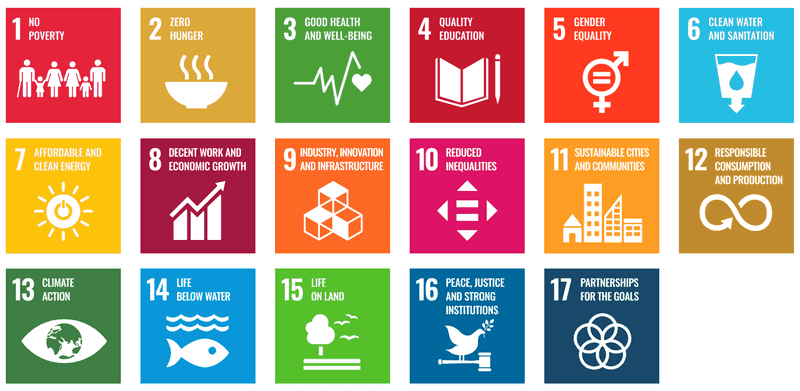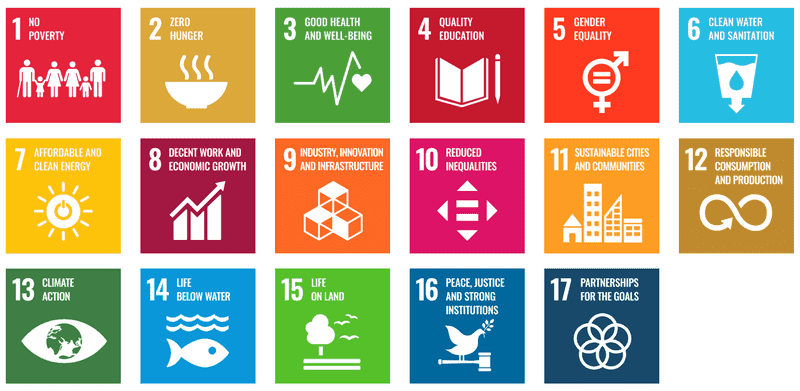4 min read
US global leadership through Sustainable Development Goals lens
Anurag : Aug 5, 2021 10:25:45 AM

Foundations and other philanthropists have stepped up their efforts and dedicated billions of dollars to achieve the SDGs, backed by the Bill and Melinda Gates Foundation. But three years into the project’s "15-year timetable, the United Nations is reporting little progress. The UN classifies the G20 countries that have reached the SDG as the 36th country in the world.
The SDGs for States and sectors of American society have become a unifying rallying cry and a common blueprint for solving universal and interrelated problems such as hunger, poverty, and inequality by 2030. The SDGs provide a clear benchmark that enables people at all levels to work towards a more resilient future in which everyone is better off. In addition to a universal agenda such as the BBVA compass, I hope that our efforts will help create an environment in which other organizations are encouraged to adopt these objectives and to create a collaborative environment for information exchange in order to take more effective steps towards achieving these objectives.
Federal governments, businesses, NGOs, and individuals are key players in achieving the goals. While local mayors and governors are often at the forefront of spearheading the national SDG agenda, private companies can also contribute to global progress toward the SDGs. Promoting entrepreneurship and job creation is key to promoting effective measures to eradicate forced labor, slavery, and trafficking in human beings.
To achieve the UN's global goals, innovation is essential to develop and harness technologies for global well-being. Goal 8 aims to maintain the 7% economic growth rate in developing countries until 2030 and to achieve full employment for all men and women over the next 15 years. No one should be left behind at the heart of the 2030 Sustainable Development Agenda: economic growth must be built in a fair world, and it must be inclusive.
In 2015, the United Nations adopted the 2030 Agenda for Sustainable Development. The Agenda lists 17 Sustainable Development Goals which address critical areas of economic, social, and environmental development that affect billions of people. IDEAGEN's annual Global Leadership 2030 Summit commits itself to find systemic solutions with catalytic effects to solve the world's most vexing problems.
The 17 Sustainable Development Goals address critical areas of economic, social, and environmental development which affect billions of people and have been ratified by 193 governments and apply to all countries, including the United States. AIM2Flourish is the highest education program for business and management schools in the world. Students learn about the Sustainable Development Goals ( SDGs ) of the United Nations, global goals, and the role of business in achieving them. The Sustainability Report 2020 presents the SDG Index, a dashboard for UN member states that frames the implementation of the SDGs in the form of six comprehensive transformations.
The Global Economy and Development Program hosted the 15th annual Brookings Blum Roundtable from August 1 to August 1 in Brookings on Challenges and Opportunities for U.S. Foreign Aid and Global Leadership. The Biden-Harris administration has prioritized the resurrection of the United States on the international stage in its early work. The Sustainable Development Goals ( SDGs ) provide a basis for joint action to reach US strategic objectives that are consistent with previous government goals of democracy, good governance, and building a peaceful and inclusive society.
Focusing on peace, justice, and strong institutions, SDG 16 is an ambitious, comprehensive, and catalytic target aimed at those affected by the COVID 19 pandemic. The United States is well-positioned to strengthen the Sustainable Development Goals ( SDGs ) and align with the priorities of the Biden-Harris administration for its development approach to justice and governance in fragile states. The US exercises global leadership through its role as the absolute largest donor of development aid and through its influence over the multilateral development institutions it creates.
The UK is working to integrate the SDG 16 commitment to democracy into key international fora, including the Community for Democracy, the Organisation for Economic Co-operation and Development (OECD), and the Development Assistance Committee. In addition to its own leadership, the US supports US companies, universities, foundations, and humanitarian organizations in their efforts to invest in, operate, and engage in global development. The US should remember the moment in 2015 when leaders of 193 countries agreed with the United Nations on the Sustainable Development Goals (SDGs).
After three years of negotiations and teetering on the edge of the abyss of the Sustainable Development Goals (SDGs), leaders of all 193 United Nations countries spent several hours working out the final details in small groups. They knew it was right, because, in the course of these negotiations, countries, policymakers, researchers, activists, and civil society recognized that our common social, economic, and environmental future is deeply intertwined.
Our global compact and local networks promote the initiative and its ten principles at the country level. The world is facing global economic, social, environmental, and regulatory challenges.
While SABMiller, a multinational brewery and beverage company, continues to play a role in the company's sustainability development, philanthropy and community investment are the strongest contributions to the SDGs through its core activities and value chain. The jobs we create and sustain, the economic growth and investment we stimulate, and the way we manage natural resources are all due to the high standards of responsible behavior that we set for our business.
With 17 targets and 169 targets, communicating the SDGs to the public has proved challenging for many countries. Young involvement is crucial for the successful implementation of these targets and the 2030 targets in the coming years so that the international community can eradicate poverty, fight climate change and build a peaceful and inclusive society.
The 2030 Agenda for Sustainable Development, adopted by member states of the United Nations in 2015, provides a common blueprint for peace and prosperity for people and the planet in the future. At their core, the 17 Sustainable Development Goals (SDGs) serve as an urgent call to action for countries and global partners. Indeed, young people played a crucial role in shaping the 2030 objective year for the international community to eradicate poverty, combat climate change, and build peaceful, inclusive societies through the Sustainable Development Agenda. They are the agents of change who are expected to lead efforts to make the 2030 Agenda a reality.
Since 2015, American leaders have laid a strong foundation for creating this ambitious global vision. While the US exercises global leadership through its foreign aid, the United States views its contributions to supporting the Sustainable Development Goals through this lens. This confirms a long-standing principle of support from the United States: we respect the universal ownership of countries and push the agenda together.
The US is a global leader through its role as the world's largest donor of development aid, both in absolute terms and by a considerable distance, and through its influence in the multilateral development institutions, it creates. In addition to their own leadership, the United States supports UN companies, universities, foundations, and humanitarian organizations in their efforts to invest, operate and engage in global development.
Demystifying the role of automation in Big Data - NewGenApps
Companies are leveraging big data to transform their digital landscape and automate organizational operations. Data disparity has been effectively...
Artificial Intelligence Learning
Artificial Intelligence Learning (AI) is also known as Machine Intelligence or a wide range in the field of Computer science that is concerned with...




